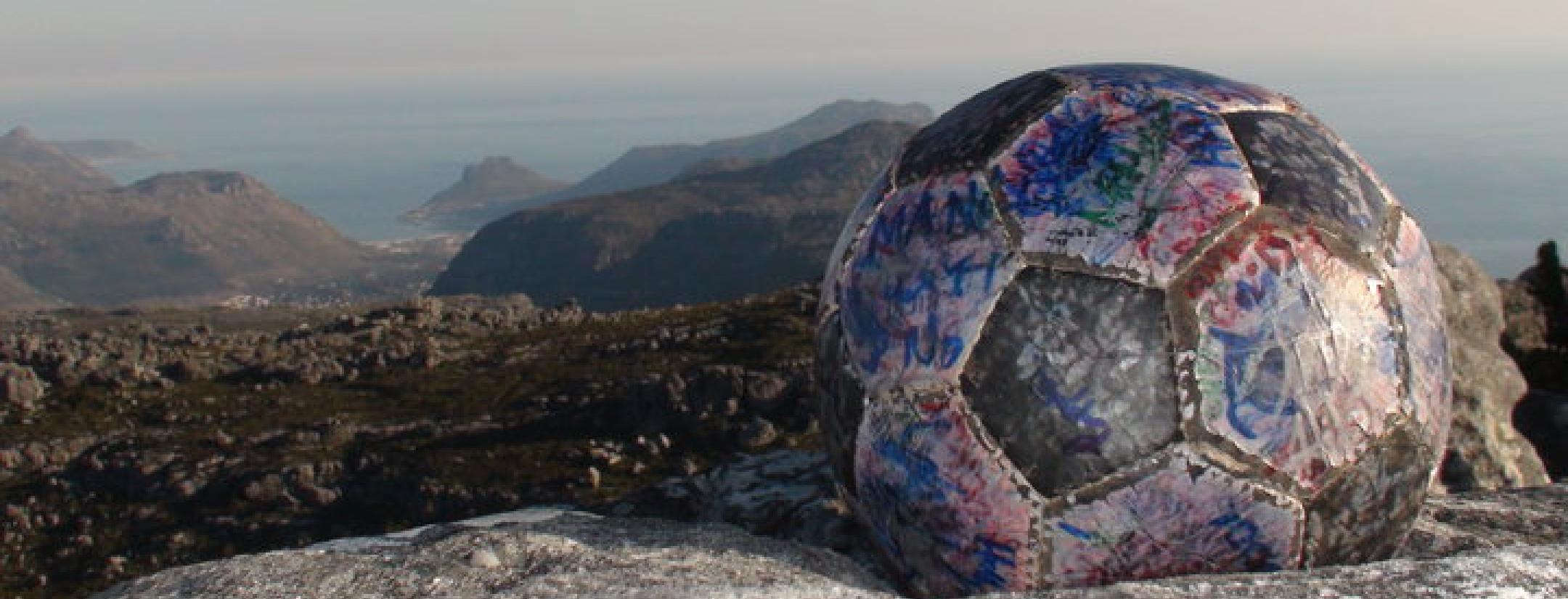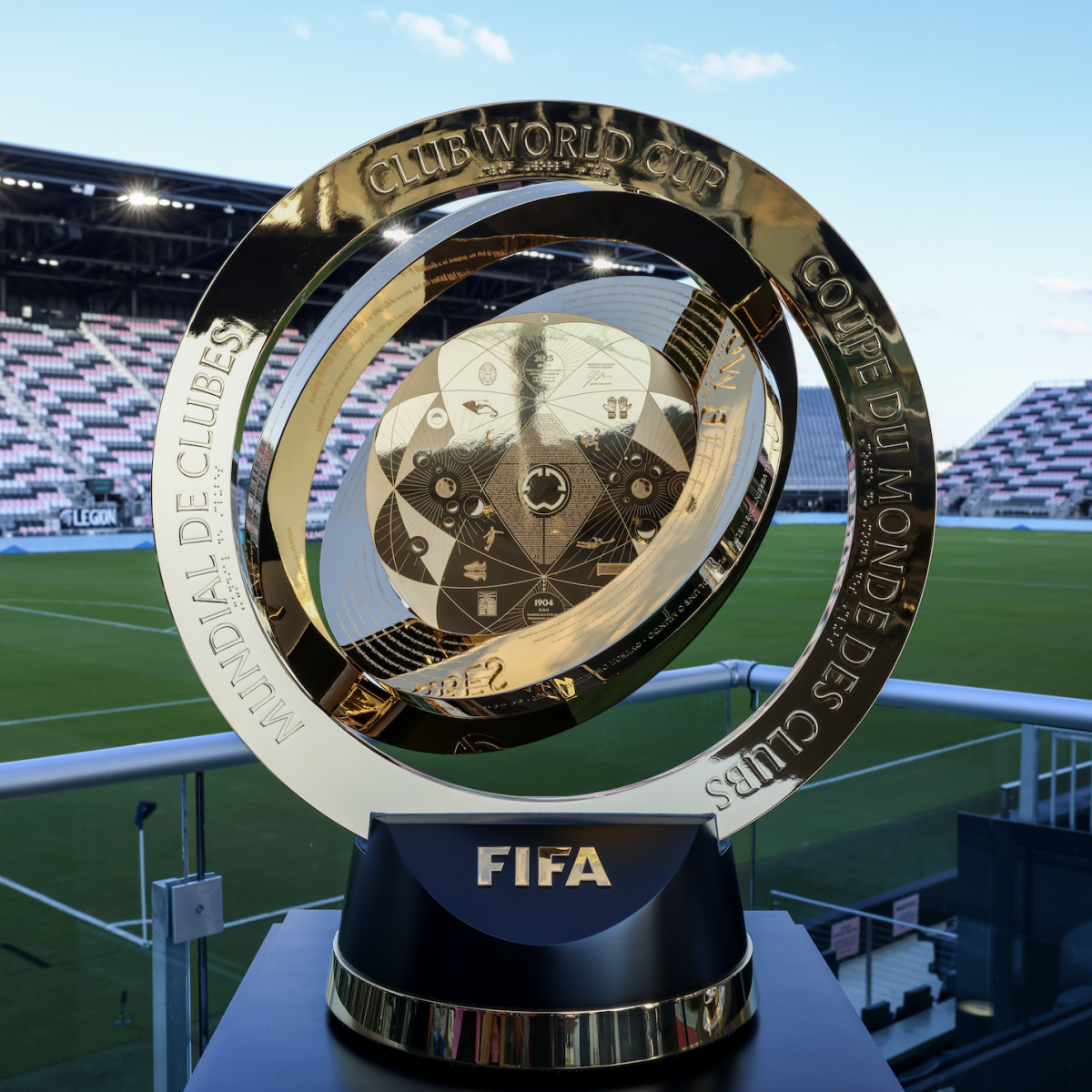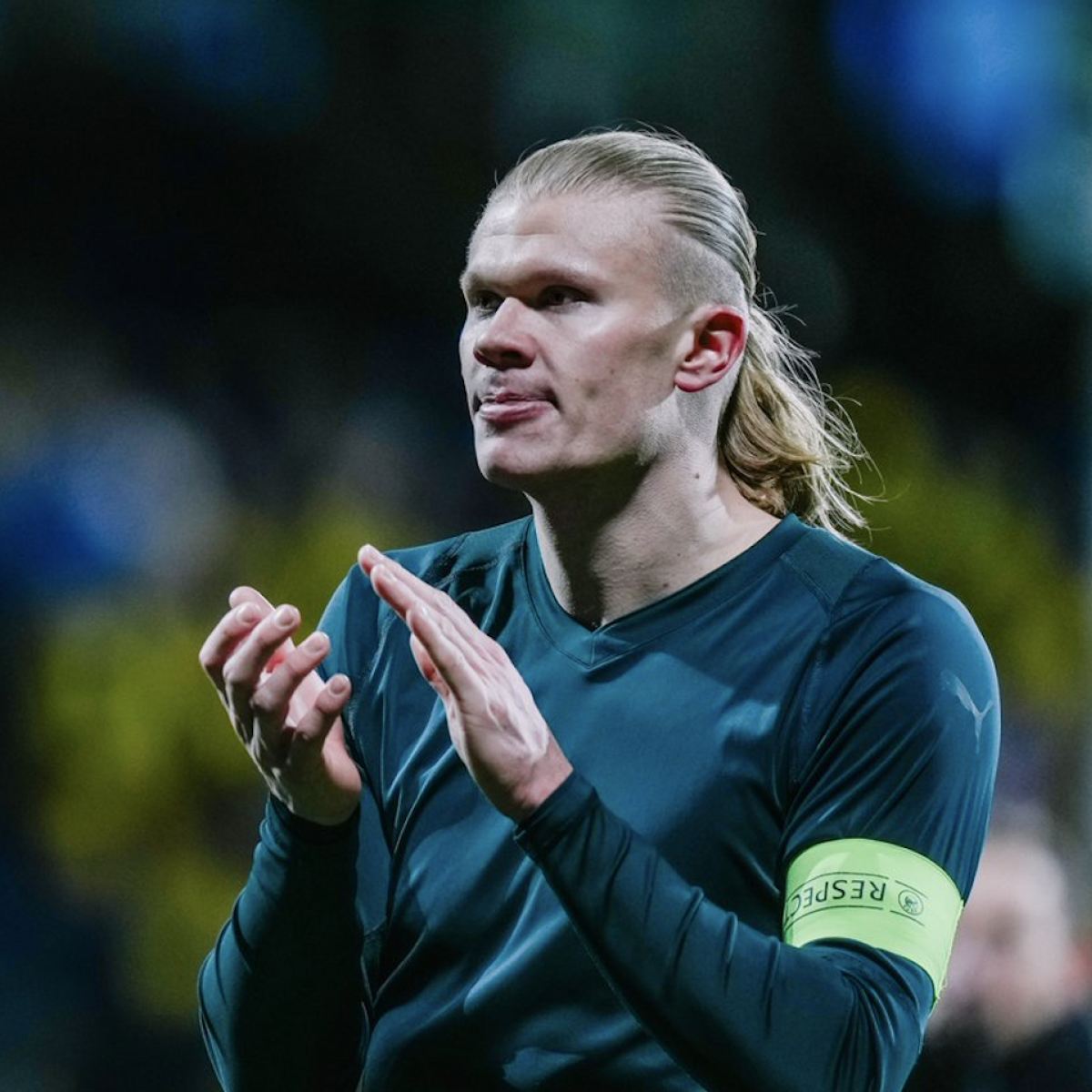The faded soccer ball, covered with scratches and thousands of signatures, is a testament to soccer's power to bring the world together. Kings, prime ministers, monks and professional footballers have knocked the ball around. The Ball has been kicked and headed all across the world. The Ball travels from Battersea Park in London to the World Cup every four years, and it started a new journey on March 25.
It's not the same ball every time. Soccer's version of the Olympic torch begins life as a bog-standard version of the official World Cup ball and goes to the men's World Cup every four years, featuring in as many football matches and kickabouts as possible along the way.
And being autographed. Anyone who comes across the ball on its journey can sign it, so long as they do a header with the ball first. Unless they're a goalkeeper. We'll explain later.
The ball is the main vessel of Spirit of Football, a non-profit based in the UK and Germany that aims to bring people together through soccer.
"We work in schools and communities, where we interactively translate these journeys into education," says Andrew Aris, Director of Spirit of Football CIC in England and the President of Spirit of Football e.V. in Germany. "It’s often not about football, it’s about music and art and theatre, and just a ball that can bring people together. It’s a very spiritual thing that we can share in communities."
Aris, a New Zealander and former player for Notre Dame, is one-sixth of Spirit of Football's main team, two of the others being the founders, Englishmen Christian Wach and Phil Wake. The two of them began to formulate the idea that would eventually become Spirit of Football in 1998. Although neither were football fans at the time, they ended up at the 1998 World Cup in France.
Wach and Wake were taken by the atmosphere in France, and took a ball to the next World Cup, the 2002 edition in Japan and South Korea. This was the ball's first journey. When they returned to England, they realized what they had on their hands, soccer's version of the Olympic torch.
Per Aris, they did some research and found out the first game of football under FA rules was played on January 9, 1864, in Battersea Park, and decided to use that as their starting point. They took a ball from Battersea Park to the World Cup and they found the ball connects people. By then they had created, or had begun to create, a movement.
Spirit of Football grew from those humble beginnings, merged with another Spirit of Football and now boasts the likes of Liverpool manager Jurgen Klopp as its FairPlay ambassador. Spirit of Football has traversed the globe, and the ball has gone to some very interesting places.
“In 2010, we met a guy named Moro Naba, he’s the king of the kings," says Aris. "He’s the king of the Mossi people and he’s based in Ouagadougou, the capital of Burkina Faso. His kingdom stretches into other countries like Mali and the Ivory Coast, so millions of people see him as their king and other kings look up to him.
"So, that’s why he has the title 'the king of the kings.' We’re very cheeky with people, so we get into all kinds of situations. So, we’re invited to the audience with the king and we presented him the ball and told him some of the stories of the ball, and we said to him, 'We’d love for him to sign the ball, but you have to do a header.' And we had been talking about our fair play rules and that stuff. And we threw the ball to him for him to do a header and he tried to catch the ball and Phil Wake went to pull out his yellow card to give it to the king for a handball.
"And he said, 'No no no no, your rules are not fair because I am a goalkeeper and I always use my hands.' And we were like, 'Ah yea, he’s got a point!' And now we’ve got the king of the king’s rule where anyone who signs the ball has to do a header first unless they’re a goalkeeper.”
It's impossible to say what kinds of situations the ball will run into this time around, but it will definitely be interesing.
"Just the week before last we were with our education project near a Syrian war refugee camp in Jordan where close to 40,000 people were living," says Aeris. "They told us men and women won’t play together. We said we want to train trainers with our methods and they told us it has to be either men or women, we can’t mix them both, and we said that we really want to. They said OK we’ll try it and we trained 22 people, 10 women and 12 men, and they said they won’t play together, they definitely won’t play together. After presenting them the ball and telling the stories of it, they played together. For the people that were on that project that week, it was an incredible life-changing experience because they saw the power of football and how it can make a difference."
You can follow along on Spirit of Football's journey here, or on Spirit of Football's social media channels.




